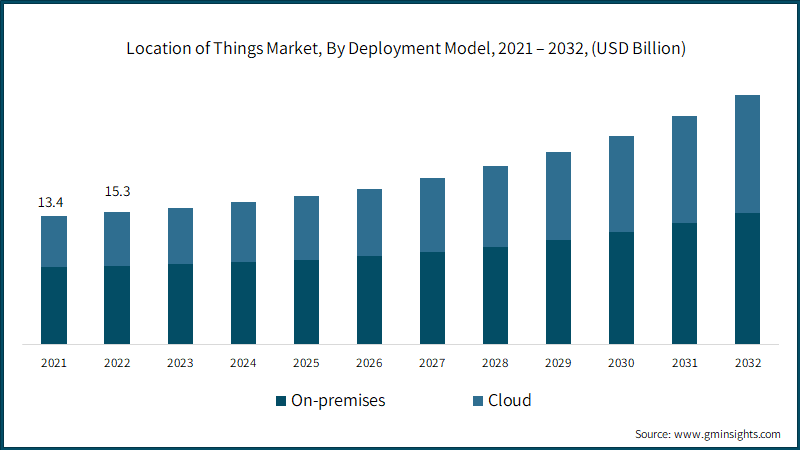Home > Media & Technology > Next Generation Technologies > Analytics and Business Intelligence > Location of Things (LoT) Market
Location of Things (LoT) Market Analysis
- Report ID: GMI7311
- Published Date: Nov 2023
- Report Format: PDF
Location of Things Market Analysis
Based on deployment model, the market is divided into on-premises and cloud. The cloud segment accounted for around 40% of the business share in 2022 and is anticipated to grow due to its capacity for scalable storage, processing power, and accessibility. Cloud-based solutions facilitate the collection, analysis, and sharing of vast location data. As more industries are adopting IoT and location-based services, the cloud's flexibility and cost-effectiveness in handling substantial data volumes and enabling real-time insights are poised to drive significant segment growth within the LoT industry.

Based on application, the location of things market is categorized into asset tracking and management, smart cities and urban planning, safety and emergency management, location-based marketing, and others. The asset tracking and management segment accounted for a business share of over 30% in 2022. The asset tracking and management segment is projected to expand due to the increased demand across industries. Companies seek efficient solutions to monitor and manage assets in real time, boosting operational productivity.
Applications leveraging location-based technology for tracking and managing assets, from inventory in logistics to equipment in manufacturing, are expected to witness increased adoption. The increased adoption can be attributed to the need for streamlined operations, reduced losses, and improved resource utilization, fueling market expansion.

North America is experiencing growth in the location of things market. The region accounted for a market share of over 30% in 2022 and is slated to register significant growth over the forecast period due to technological advancements and robust adoption of IoT and location-based services. With a high concentration of tech firms and a significant emphasis on smart city initiatives, the region fosters a favorable ecosystem for LoT development. For instance, in October 2023, City of Montreal introduced the Smart Traffic Management project in collaboration with Kapsch TrafficCom. Kapsch is providing its AI-enabled platform to identify dangerous behaviors on the roads and provide real-time traffic insights.

